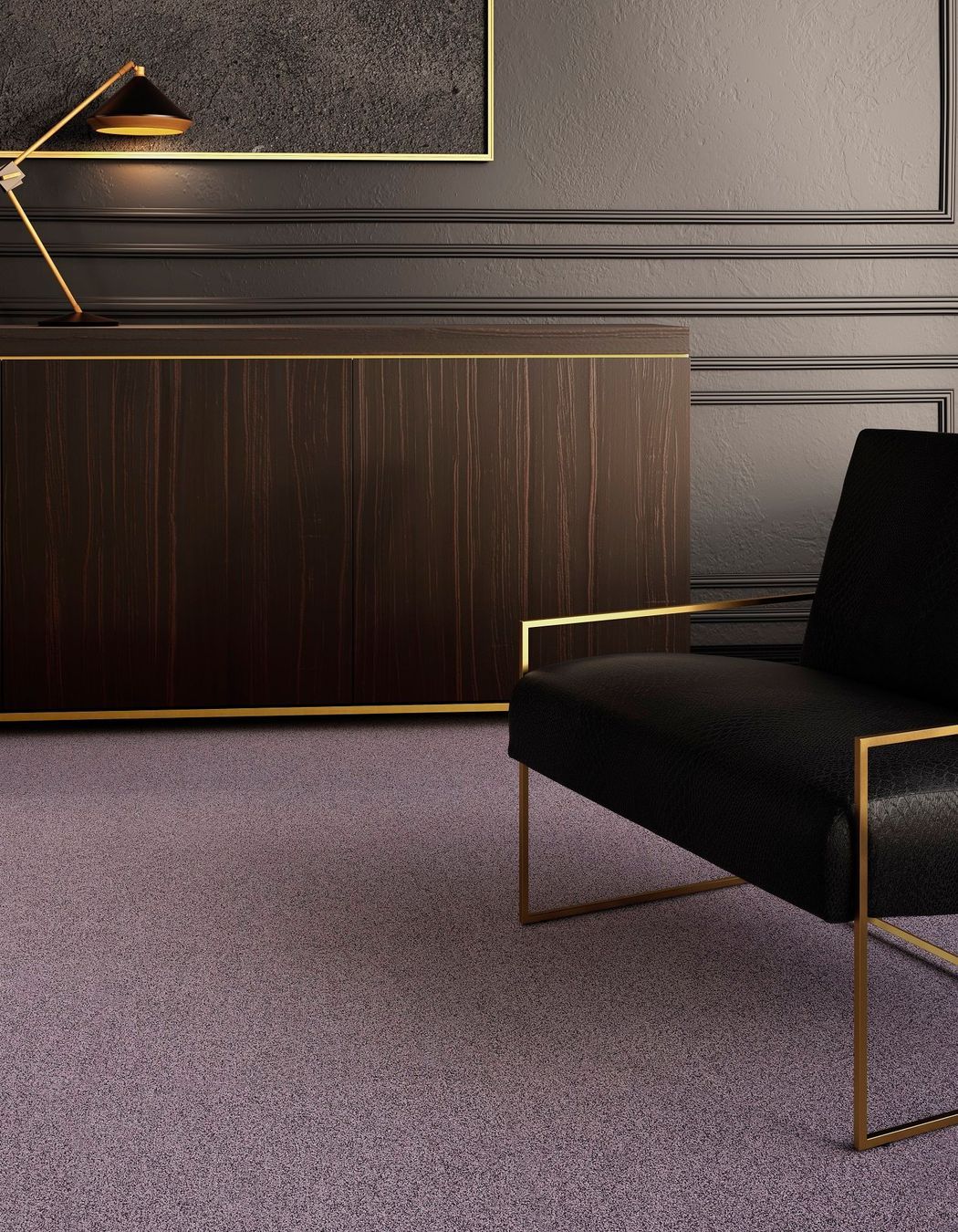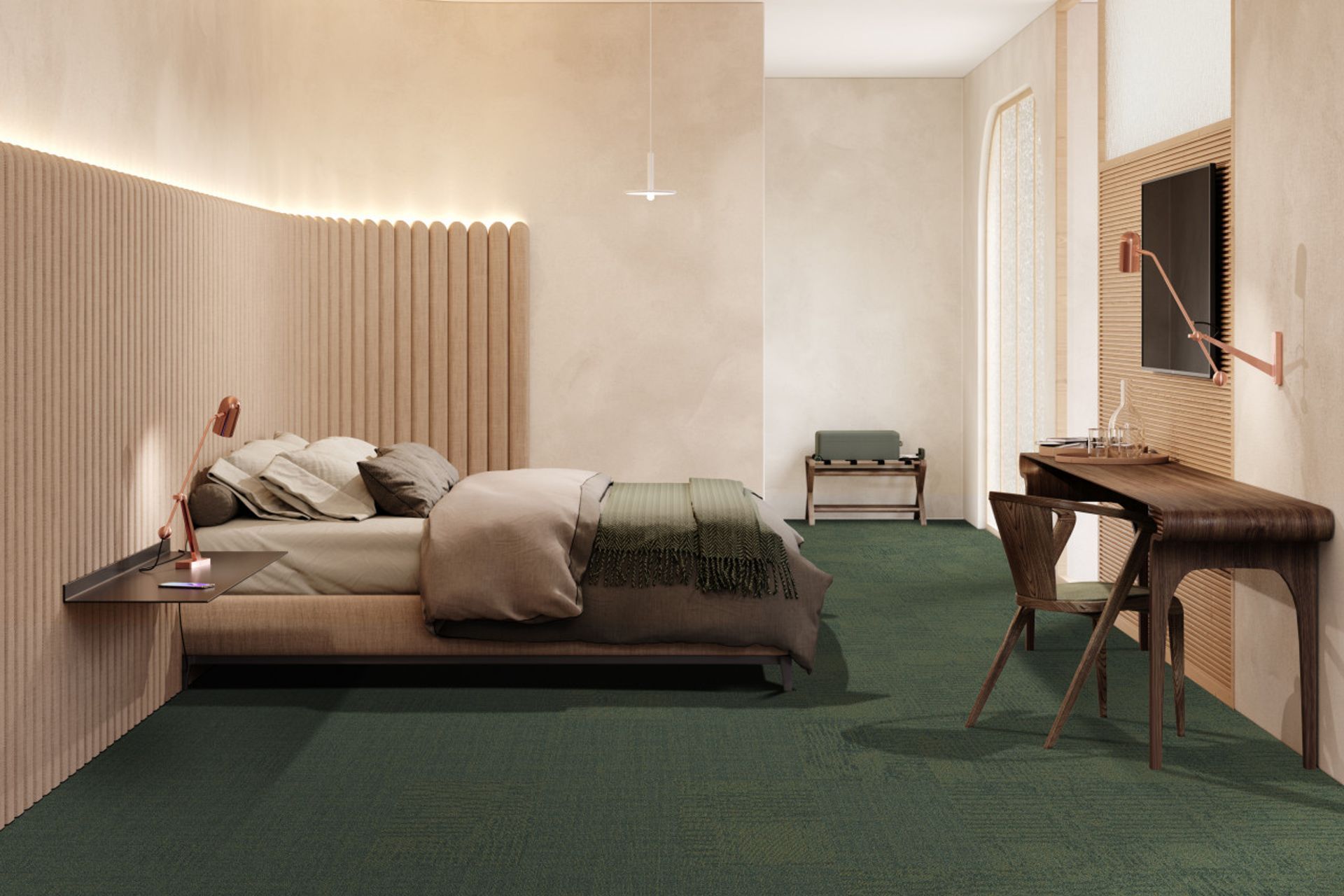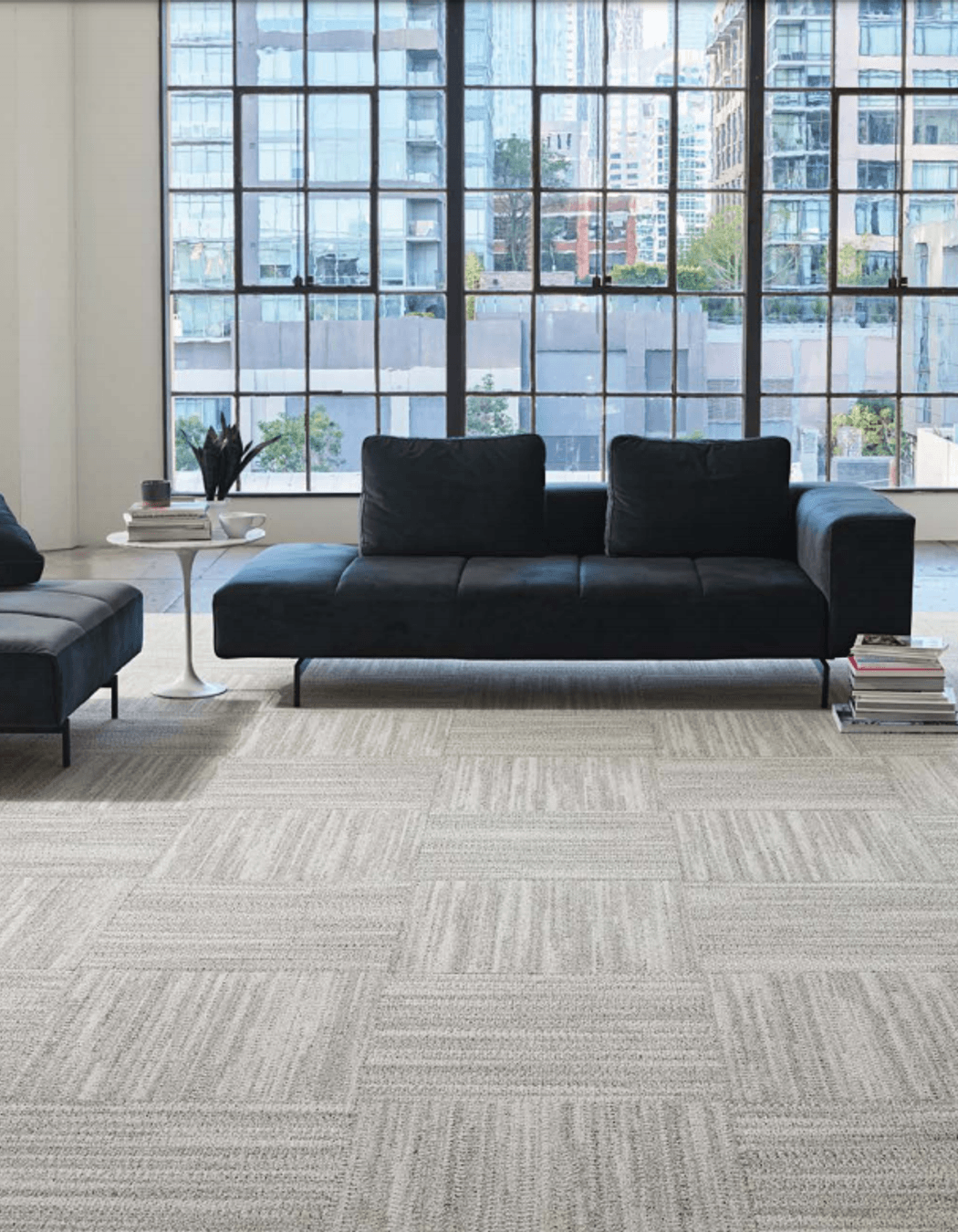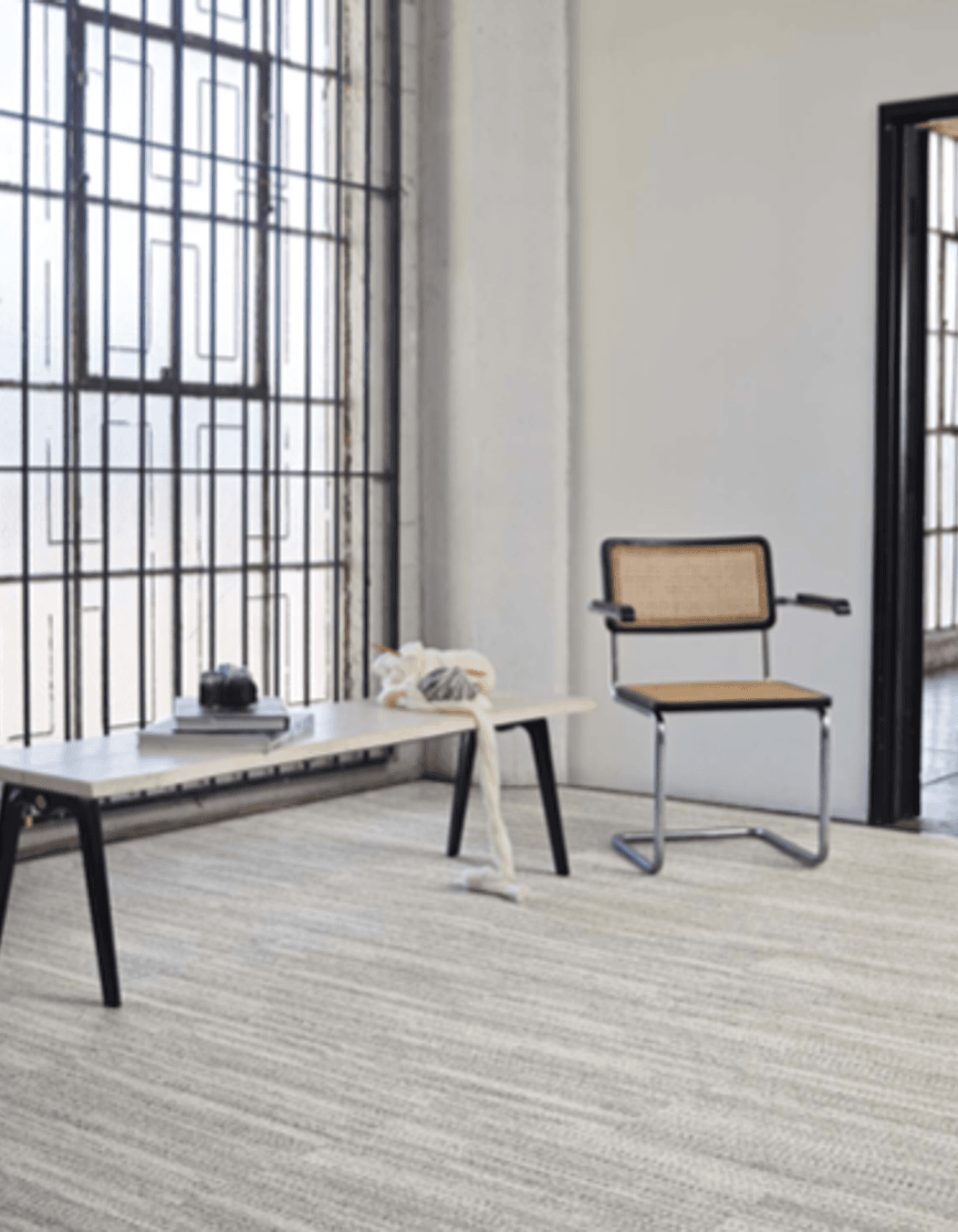New: luxury carpet tiles for residential spaces
Written by
06 November 2018
•
4 min read
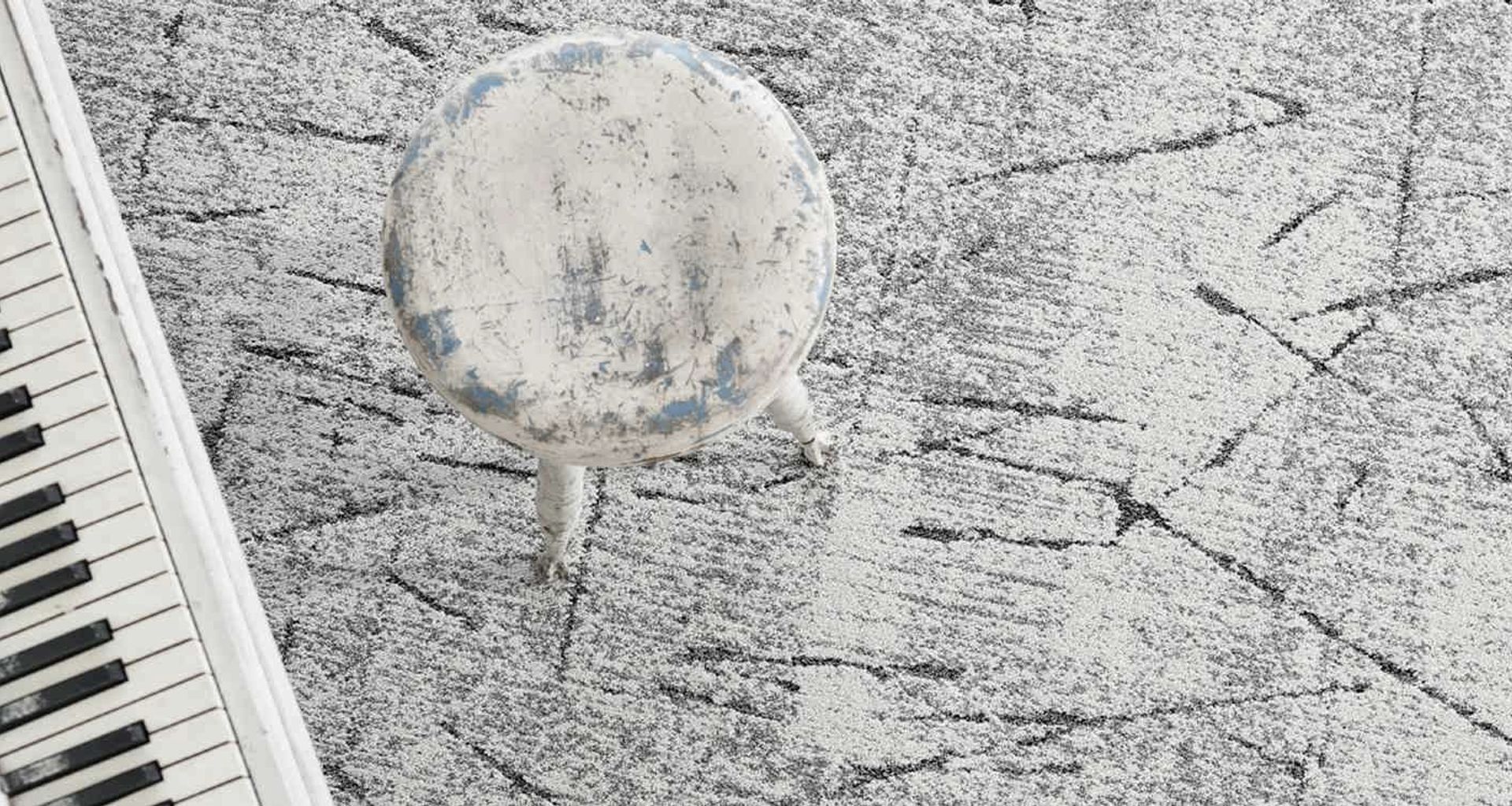
Carpet tiles have always been synonymous with commercial spaces and for good reason – commercial spaces typically experience more wear on their floor coverings than residential spaces. Additionally, to replace only a few tiles rather than a whole room of carpet means cost savings and spaces stay looking their best for longer.
But commercial carpet tiles have the reputation of being hard underfoot and have an industrial ‘look’ – that is until now. There are now carpet tiles that have been designed to be so luxurious and soft that they’re equally as suitable for residential applications, but with all the usual benefits of commercial carpet tiles.
Heritage Carpets' Umesh Dayal says the development of these tiles is due to workplaces moving to a more employee-friendly look.
“Commercial carpet tiles are changing to make workplaces more comfortable, the tiles have developed and changed over time so there are products now that are really quite soft and they look really good too.”
Luxurious, soft carpet tiles are also being used in hotel rooms, because these spaces need to feel warm and homely.
“We have carpet tiles out there that are just gorgeous. We’re working with a few hotel operators and what hoteliers are looking for is something that makes visitors feel at home.”
But the bonus is, those areas that do get beaten down by regular use, such as in doorways, can be replaced with soft new tiles to instantly rejuvenate the look of the room.
That’s something that’s not possible with broadloom carpets and Umesh says consumers are turning to beautiful, tactile carpet tile as a result.
The other benefit from a maintenance perspective is these tiles are made by companies working in the commercial space, so they are very durable, but they are also very cleanable.
But if a spill or smell can’t be cleaned, it’s easy enough to replace a single tile, says Umesh.
European tile trend
In parts of Europe, the trend for carpet tiles in residential spaces has long been established, because due to the long tenure of rental properties tenants take all of the fittings with them when they leave, which includes the carpet.
We may see this trend take off in New Zealand, says Umesh, due to the growing urban intensification, more people renting for longer.
“If you rent a bare timber floor apartment but you want it to be carpeted you can just go ahead and find a carpet tile that you like and put it down using a double-sided tape secured at the edges.”
A European carpet tile offered by Heritage Carpets that is gaining popularity is a natural speckled look that is blended between three shades so that it hides dust and other particles, says Umesh. But to up the luxury factor, it has a metallic thread woven through it which shines when the light hits it.
“It’s popular in Europe in hotels but it has also been used in the workplace,” says Umesh.
There’s a sustainability focus to some of the manmade fibre products too: many of the carpet tiles containing nylon have been regenerated from used materials and have an array of environmental certifications.
“They don’t have PVC in them or a lot of the other nasty toxins commonly used in dyes,” says Umesh.
Carpet tiles come with the option of different thicknesses of carpet cushion backing pre-assembled, so that underlay doesn’t have to be laid underneath the tiles. It’s an added cost benefit because the time it takes to lay tiles is further reduced in comparison to the much lengthier process of laying underlay and stretching broadloom carpet to fit.
Umesh says there’s a health and safety impact on carpet installers too when they have to carry rolls of pre-cut 80kg – 100kg carpet up flights of stairs – “whereas carpet tiles come in small boxes on trolleys.”
The speed at which carpet tiles can be laid because of the ease of transporting tiles and simple installation means residential property developers are now looking at how carpet tiles could be applied in residential spaces.
Umesh says carpet tile designers are supporting this move into the residential design space as the designs expand into a new, luxury aesthetic. It means the flooring choice usually associated with commercial spaces, will likely soon be a regular feature in residential spaces too.
Want to know more about carpet tiles for residential applications? Be sure to visit Heritage Carpets on ArchiPro today or visit their Auckland showroom.
